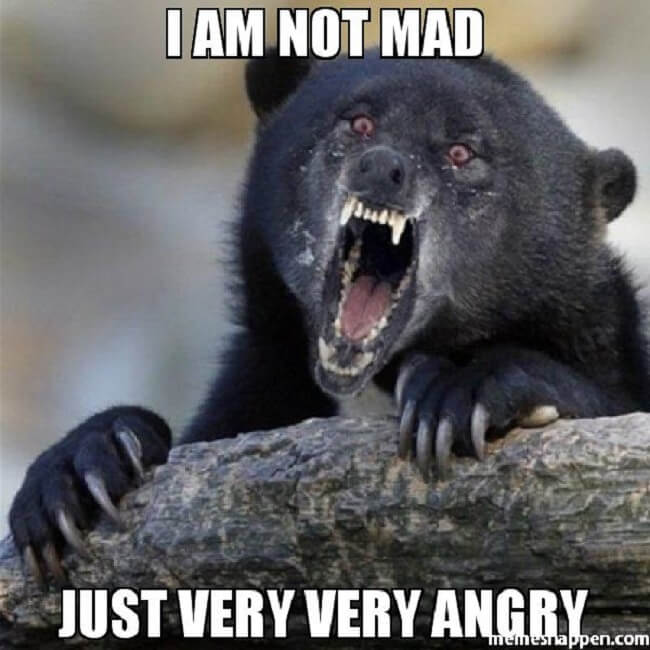Humor plays a significant role in human communication, but not all jokes are created equal. Some jokes, particularly really offensive jokes, can create discomfort, hurt feelings, and even damage relationships. Understanding why certain jokes are offensive and how they impact different cultures and communities is crucial in fostering respectful communication.
Humor has the power to bring people together, but it can also divide them. When jokes cross the line into offensive territory, they can perpetuate stereotypes, reinforce biases, and harm individuals or groups. This article explores the complexities of offensive humor and provides insights into how we can navigate this sensitive topic responsibly.
By examining the psychology behind humor, cultural differences, and the consequences of offensive jokes, we aim to help readers develop a deeper understanding of this issue. Whether you're a comedian, writer, or simply someone who enjoys humor, this guide will equip you with the knowledge to make informed choices about what is appropriate and what is not.
Read also:The Astonishing Speed Of Light Unveiling The Mysteries Of Physics
Table of Contents
- Understanding Humor: The Psychology Behind Laughter
- What Are Really Offensive Jokes?
- The Impact of Offensive Jokes on Society
- Cultural Differences in Humor Perception
- Types of Really Offensive Jokes
- The Psychology of Offensive Humor
- How to Avoid Really Offensive Jokes
- The Importance of Sensitivity in Humor
- A Historical Perspective on Offensive Humor
- Conclusion: Building a More Respectful Humorous World
Understanding Humor: The Psychology Behind Laughter
Humor is a complex psychological phenomenon that serves multiple purposes in human interaction. It can relieve stress, strengthen social bonds, and even enhance cognitive abilities. However, not all humor is universally appreciated, and some forms of humor can be deeply offensive.
Research shows that humor often relies on the violation of social norms or expectations. When these violations are perceived as harmless or playful, they can elicit laughter. However, when the violation crosses into sensitive or harmful territory, the result can be offense rather than amusement.
Understanding the psychological mechanisms behind humor helps us recognize why certain jokes resonate with some people while offending others. Factors such as personal experiences, cultural background, and individual sensitivities all play a role in how humor is perceived.
Key Theories in Humor Psychology
- Incongruity Theory: Humor arises from the unexpected clash between two seemingly incompatible ideas.
- Superiority Theory: People find humor in situations where they feel superior to others.
- Relief Theory: Humor provides a release for built-up tension or anxiety.
What Are Really Offensive Jokes?
Really offensive jokes are those that intentionally or unintentionally demean, insult, or harm individuals or groups. These jokes often rely on stereotypes, prejudices, or discriminatory attitudes to generate laughter. While humor can be subjective, certain types of jokes are widely recognized as offensive across cultures and communities.
Examples of offensive jokes include those targeting race, gender, religion, sexual orientation, disabilities, and other sensitive topics. These jokes can perpetuate harmful stereotypes and contribute to a culture of intolerance and discrimination.
Characteristics of Offensive Jokes
- Target vulnerable or marginalized groups.
- Reinforce negative stereotypes or biases.
- Minimize or trivialize serious issues such as violence, abuse, or discrimination.
The Impact of Offensive Jokes on Society
The impact of really offensive jokes extends beyond the immediate reaction of the listener. These jokes can have lasting effects on individuals, communities, and society as a whole. They can create an environment of hostility, fear, and mistrust, undermining efforts to promote inclusivity and equality.
Read also:The Cultural Nuances Of Saying Thank You In Chinese
Research indicates that exposure to offensive humor can desensitize individuals to discrimination and prejudice. It can also normalize harmful attitudes and behaviors, making it more difficult to address systemic issues such as racism, sexism, and ableism.
On a personal level, offensive jokes can lead to feelings of humiliation, anger, and alienation. Victims of such jokes may experience long-term psychological effects, including anxiety, depression, and decreased self-esteem.
Consequences of Offensive Humor
- Damage to personal relationships.
- Increased social tension and division.
- Reinforcement of harmful stereotypes and biases.
Cultural Differences in Humor Perception
Humor is not a one-size-fits-all concept. Cultural differences play a significant role in how humor is perceived and appreciated. What may be considered funny in one culture can be deeply offensive in another. Understanding these differences is essential for fostering cross-cultural communication and respect.
For example, some cultures prioritize politeness and indirect communication, making overt or aggressive humor less acceptable. In contrast, other cultures may embrace more direct or edgy humor, as long as it is delivered in a respectful manner.
Globalization and the internet have made it easier for people from different cultures to interact, but this also increases the likelihood of misunderstandings. Being aware of cultural nuances in humor can help prevent unintentional offense.
Examples of Cultural Humor Differences
- In Japan, slapstick and physical comedy are popular, while sarcasm is less common.
- In the United States, satire and irony are widely appreciated, but they may not resonate with audiences in more collectivist cultures.
Types of Really Offensive Jokes
Offensive jokes come in many forms, each with its own set of characteristics and implications. Understanding the different types of offensive humor can help us identify and avoid them in our own communication.
Racist Jokes
Racist jokes rely on stereotypes about race or ethnicity to generate laughter. These jokes can perpetuate harmful biases and contribute to a culture of racism and discrimination.
Sexist Jokes
Sexist jokes target gender roles, identities, or characteristics. They often reinforce patriarchal attitudes and undermine efforts to achieve gender equality.
Homophobic Jokes
Homophobic jokes demean or mock individuals based on their sexual orientation. These jokes contribute to a hostile environment for LGBTQ+ individuals and perpetuate discrimination.
The Psychology of Offensive Humor
Why do people tell offensive jokes? The psychology behind offensive humor is complex and multifaceted. Some individuals may use offensive jokes as a way to assert dominance or superiority over others. Others may tell such jokes out of ignorance or a lack of awareness about their impact.
Research suggests that people who frequently engage in offensive humor may have higher levels of prejudice and lower empathy. However, not all offenders are malicious; some may simply be unaware of the harm their jokes cause.
Understanding the motivations behind offensive humor can help us address the root causes and promote more respectful forms of communication.
Factors Influencing Offensive Humor
- Personal beliefs and values.
- Social environment and peer influence.
- Exposure to media and popular culture.
How to Avoid Really Offensive Jokes
Avoiding offensive jokes requires a combination of awareness, empathy, and intentionality. By being mindful of the potential impact of our words, we can create a more respectful and inclusive environment for everyone.
Here are some practical tips for avoiding offensive humor:
- Think before you speak. Consider the potential impact of your words on others.
- Be aware of cultural differences and sensitivities.
- Seek feedback from diverse groups to ensure your humor is appropriate.
By taking these steps, we can ensure that our humor is not only funny but also respectful and inclusive.
The Importance of Sensitivity in Humor
Sensitivity in humor is crucial for maintaining positive relationships and fostering a culture of respect. When we take the time to consider the feelings and experiences of others, we demonstrate empathy and compassion.
Sensitive humor can still be edgy and thought-provoking without crossing into offensive territory. By balancing humor with respect, we can create a space where everyone feels valued and appreciated.
Ultimately, sensitivity in humor is about recognizing the power of words and using that power responsibly.
A Historical Perspective on Offensive Humor
Offensive humor has a long and complicated history. Throughout the centuries, jokes have been used to both challenge authority and perpetuate harmful stereotypes. Understanding the historical context of offensive humor can help us appreciate its evolution and the ongoing struggle for more respectful forms of communication.
In the past, offensive jokes were often used to reinforce existing power structures and marginalize certain groups. However, as society has become more aware of issues such as racism, sexism, and ableism, there has been a growing movement to challenge and redefine what is considered acceptable humor.
Today, comedians and writers are increasingly called upon to navigate the delicate balance between pushing boundaries and respecting sensitivities. This shift reflects a broader cultural shift toward greater inclusivity and understanding.
Conclusion: Building a More Respectful Humorous World
Humor is a powerful tool that can bring people together or drive them apart. By understanding the complexities of offensive humor and its impact on individuals and society, we can make more informed choices about what we find funny and what we choose to avoid.
To recap, here are the key points we've covered:
- Really offensive jokes can harm individuals and communities, perpetuating stereotypes and discrimination.
- Cultural differences play a significant role in how humor is perceived and appreciated.
- Avoiding offensive jokes requires awareness, empathy, and intentionality.
We invite you to join the conversation by leaving a comment or sharing this article with others. Together, we can build a more respectful and inclusive world where humor enhances rather than harms our relationships.


